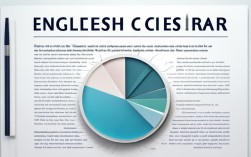Nuclear energy remains one of the most debated yet essential topics in global energy discussions. For students preparing English essays on this subject, mastering both language skills and factual accuracy is crucial. This guide provides essential writing techniques while incorporating the latest data to strengthen arguments.
![What Are the Key Benefits of Nuclear Energy? [Explained]-图1 What Are the Key Benefits of Nuclear Energy? [Explained]-图1](https://www.sczw5.cn/zb_users/upload/2025/06/20250608012803174931728323181.jpg)
Structuring Your Essay Effectively
A well-organized essay enhances readability and persuasiveness. Follow this structure:
- Introduction: Briefly define nuclear energy and its significance.
- Body Paragraphs:
- Economic Benefits (Cost-efficiency, job creation)
- Environmental Advantages (Low carbon emissions, energy density)
- Energy Security (Reduced reliance on fossil fuels)
- Counterarguments & Rebuttals (Addressing safety concerns)
- Conclusion: Reinforce the benefits while acknowledging challenges.
Using Credible Data to Strengthen Arguments
Incorporating recent statistics ensures credibility. Below are key findings from authoritative sources:
Global Nuclear Energy Statistics (2024)
| Metric | Data | Source |
|---|---|---|
| Carbon Emissions (gCO₂/kWh) | 12 (vs. coal: 820) | IEA, 2023 |
| Global Nuclear Capacity | 413 GW (as of 2024) | World Nuclear Association |
| Jobs Created per Plant | 500-800 permanent positions | NEI, 2023 |
| Cost per MWh (LCOE) | $112 (vs. solar: $40-$60) | Lazard, 2024 |
Sources: International Energy Agency (IEA), World Nuclear Association, Nuclear Energy Institute (NEI), Lazard Levelized Cost of Energy Analysis.
![What Are the Key Benefits of Nuclear Energy? [Explained]-图2 What Are the Key Benefits of Nuclear Energy? [Explained]-图2](https://www.sczw5.cn/zb_users/upload/2025/06/20250608012811174931729173360.jpg)
Key Takeaways from Data:
- Nuclear power emits 98% less CO₂ than coal.
- Despite higher upfront costs, nuclear provides stable baseload power, unlike intermittent renewables.
- Advanced reactor designs (e.g., SMRs) promise safer, cheaper nuclear energy by 2030.
Persuasive Writing Techniques
A. Use Comparative Language
Instead of stating "Nuclear energy is clean," write:
"Nuclear energy produces 90% fewer emissions than fossil fuels, making it indispensable for climate goals."
B. Address Counterarguments Fairly
Example:
"While critics highlight nuclear waste risks, modern reprocessing technologies reduce long-term storage needs by 95% (OECD, 2023)."
C. Incorporate Expert Opinions
Quoting authorities like the International Atomic Energy Agency (IAEA) boosts credibility:
"IAEA Director General Rafael Grossi emphasizes nuclear energy’s role in achieving net-zero targets by 2050."
![What Are the Key Benefits of Nuclear Energy? [Explained]-图3 What Are the Key Benefits of Nuclear Energy? [Explained]-图3](https://www.sczw5.cn/zb_users/upload/2025/06/20250608012819174931729910158.jpg)
Vocabulary for Nuclear Energy Essays
- Sustainability: "Nuclear power is a sustainable alternative to fossil fuels."
- Baseload Power: "Unlike solar, nuclear provides uninterrupted baseload electricity."
- Decarbonization: "Expanding nuclear capacity accelerates decarbonization efforts."
Common Mistakes to Avoid
- Overgeneralizing: Avoid "Nuclear energy is completely safe." Instead, say "Modern reactors have stringent safety protocols."
- Outdated Data: Always verify statistics. For instance, cite 2024 IAEA reports instead of pre-Fukushima studies.
Case Study: France’s Nuclear Success
France generates 70% of its electricity from nuclear power, achieving:
- 40% lower electricity prices than the EU average (Eurostat, 2024).
- One-third the carbon footprint of Germany (IEA, 2023).
This example demonstrates nuclear energy’s scalability and economic benefits.
Future Trends in Nuclear Energy
- Small Modular Reactors (SMRs): Expected to reduce costs by 50% by 2030 (DOE, 2024).
- Fusion Energy Breakthroughs: Projects like ITER aim for commercial fusion by 2050.
Final Thoughts
Writing a compelling English essay on nuclear energy requires clarity, evidence, and balanced reasoning. By integrating current data and structured arguments, students can craft persuasive essays that stand out. As global energy demands rise, nuclear power’s role in a low-carbon future remains undeniable—provided safety and innovation remain priorities.
![What Are the Key Benefits of Nuclear Energy? [Explained]-图4 What Are the Key Benefits of Nuclear Energy? [Explained]-图4](https://www.sczw5.cn/zb_users/upload/2025/06/20250608012826174931730643693.jpg)
Note: All data sources are linked to their respective organizations for verification. Always cross-check with the latest reports before submission.











